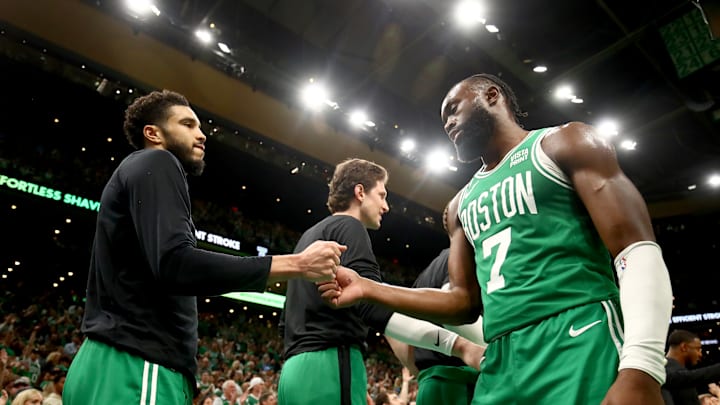1. The Celtics may not want to pay Brown and Tatum supermax deals
The Boston Celtics will be faced with a conundrum on the financial front, with the league's new Collective Bargaining Agreement taking effect next season. With Brown and Tatum on supermax deals, Brad Stevens and the Celtics' front office will have to factor in the extra luxury tax restrictions of the CBA.
For example, if a team's payroll surpasses the salary cap by $17.5 million, the team will be handicapped by restrictions imposed by the base tax apron of around seven million. The challenge of inking Brown to a supermax deal, valued at $295 million over five years, and Tatum, valued at $318 million over five years, would certainly place the C's up against the luxury tax.
This would make it a daunting task to add other necessary championship ingredients, which come with a price tag, based on the market for said skillset. For example, a quality 3-and-D player could come at a starting annual number of $12-19 million.
With the Celtics investing over a combined $600 million in Brown and Tatum, they'd practically be forced to round out their roster with players on the minimum, and we've seen how that goes. They could also bank on getting key players and contributors to come to Boston on a lower dollar amount to play alongside Brown and Tatum, which could prove difficult unless both players have an abundance of relationships with other high-level players around the league.
In short, giving Brown and Tatum supermax deals might not be an appealing option for the Celtics' brass.
